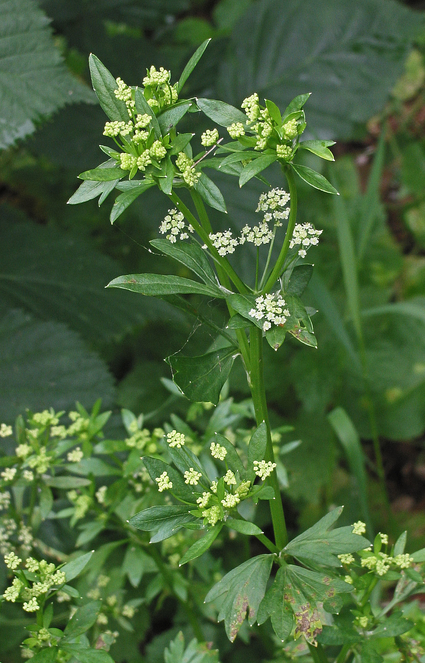Although not as medicinally active as wild celery, the cultivated forms of celery also have the same medicinal properties and, when used as an item of the diet, will have a similar effect upon the body. These medicinal uses are as follows:- Wild celery is an aromatic bitter tonic herb that reduces blood pressure, relieves indigestion, stimulates the uterus and is anti-inflammatory. The ripe seeds, herb and root are aperient, carminative, diuretic, emmenagogue, galactogogue, nervine, stimulant and tonic. Wild celery is said to be useful in cases of hysteria, promoting restfulness and sleep and diffusing through the system a mild sustaining influence. The herb should not be prescribed for pregnant women. Seeds purchased for cultivation purposes are often dressed with a fungicide, they should not be used for medicinal purposes. The root is harvested in the autumn and can be used fresh or dried. The whole plant is harvested when fruiting and is usually liquidized to extract the juice. The seeds are harvested as they ripen and are dried for later use. An essential oil obtained from the plant has a calming effect on the central nervous system. Some of its constituents have antispasmodic, sedative and anticonvulsant actions. It has been shown to be of value in treating high blood pressure. A homeopathic remedy is made from the herb. It is used in treating rheumatism and kidney complaints. Source: https://pfaf.org/
Celeriac
Apium graveolens rapaceum
Find more about this plant on Wikipedia.
